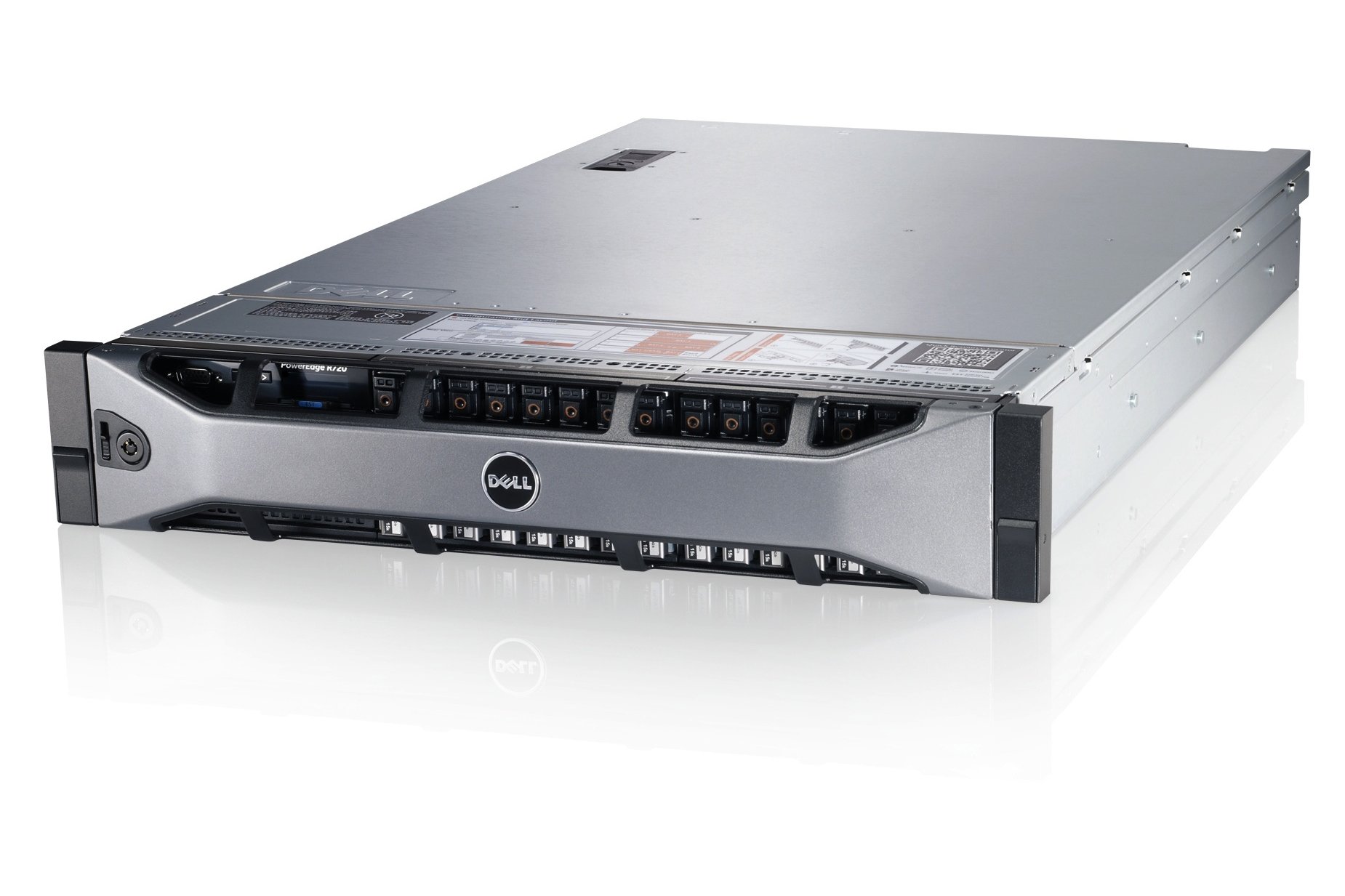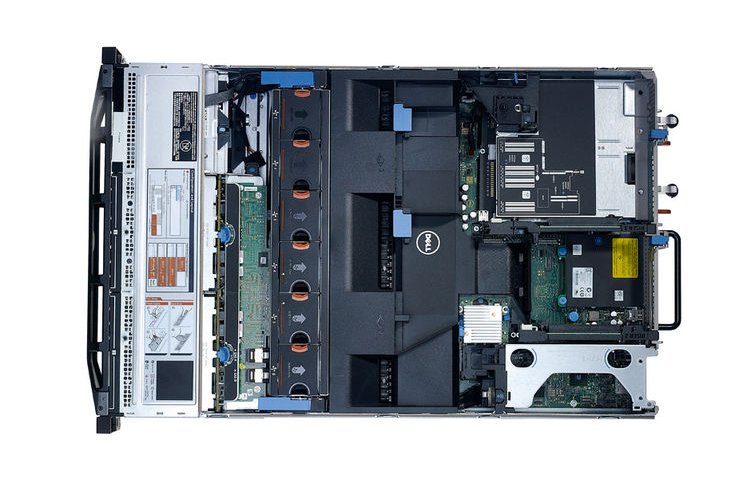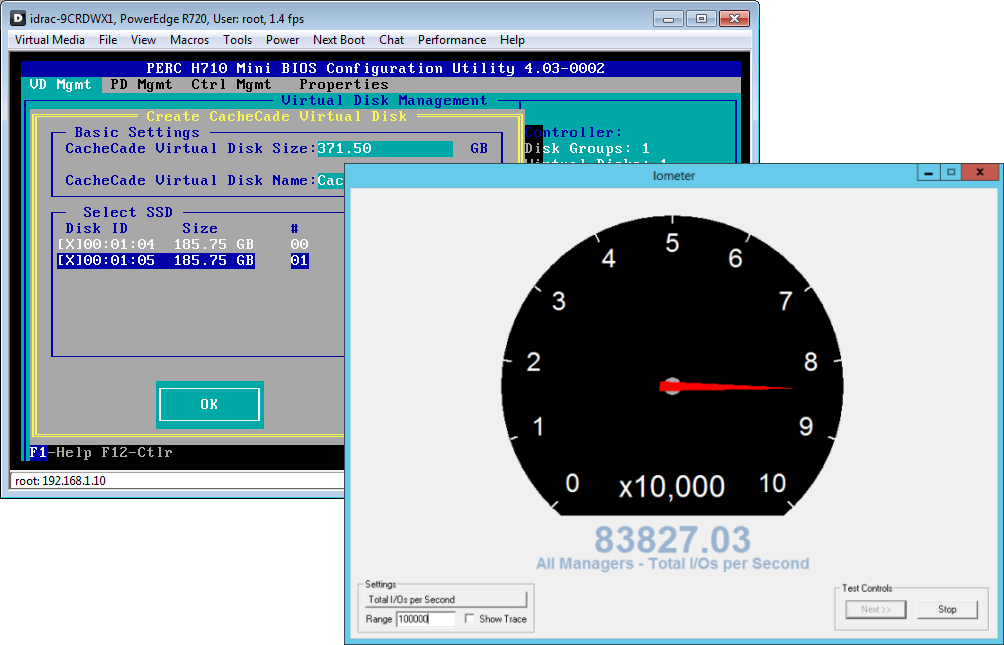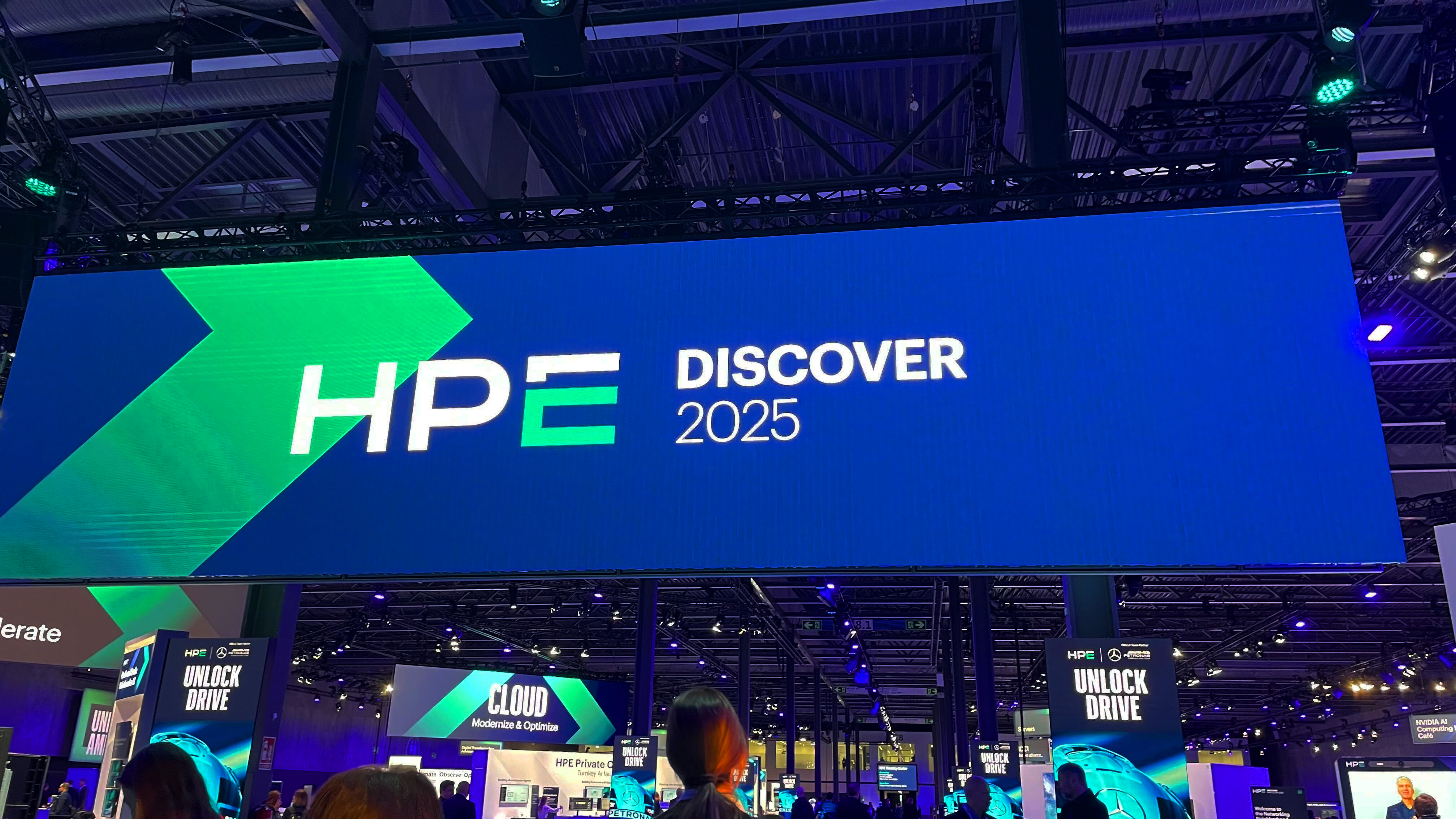Dell PowerEdge R720 (2014) review
Dell’s flagship 2U rack server gets a big boost with Xeon E5-2600 v2 CPUs, faster memory and lightning quick SSD read caching.


Dell’s PowerEdge R720 just keeps on getting better, making it well suited to running a wide range of business applications. Its E5-2600 v2 Xeons deliver more cores for less power, expansion potential is superb and its CacheCade feature can seriously boost read IOPS.
-
+
Supports E5-2600 v2 Xeons, superb design, high expansion potential, excellent virtualisation features
-
-
CacheCade still only accelerates read ops

As a general purpose rack server, Dell's PowerEdge R720 has always been a top choice and this latest version offers an even higher processing density and increased performance. It supports Intel's E5-2600 v2 CPUs which deliver more cores and better performance without a significant increase in power demands.
Memory speeds are increased to 1,866MHz and Dell has implemented its patented Fault Resilient Memory (FRM) feature. Supporting the new Reliable Memory Technology feature of VMware's vSphere 5.5, this allows a protected memory zone to be created for the hypervisor without taking up half the system memory.
The Dell Processor Acceleration Technology (DPAT) targets high frequency trading applications that require consistent and predictable processor performance. Intel's Turbo Boost transitions can increase latency and jitter but DPAT allows you to fix the number of active cores and Turbo Boost speed to minimise these effects and provide a smoother performance.
Our review system also came with the CacheCade feature of Dell's PERC RAID controller enabled. This is designed to use SSDs to improve read operations and our lab tests show what a big difference it can make.

The R720 is very well designed and its 2U chassis offers an impressive range of feature and expansion options.
The v2 Xeons
The E5-2600 v2 Xeons see a drop to a 22nm fab allowing them to deliver more cores and better performance without increasing power consumption. Dell supplied the review system with a pair of E5-2680 v2 Xeons which are members of Intel's Advanced team of CPUs.
Sign up today and you will receive a free copy of our Future Focus 2025 report - the leading guidance on AI, cybersecurity and other IT challenges as per 700+ senior executives
These new 2.8GHz Xeons are 10-core models, have 25MB of L3 cache, support 1,866MHz memory speeds and have a TDP of 115W. The first generation E5-2680 Xeon runs at 2.7GHz, has 8 cores plus a 20MB L3 cache and a higher 130W TDP.
The E5-2600 v2 family is big with the Advanced, Standard and Basic models bringing the count to seventeen. The E5-2680 v2 models in the review system will set you back around 1,500 each but you can choose lower cost models as the R720 supports the entire family.

Dell's CacheCade is quick to configure and delivers an enormous boost to read IOPS.
CacheCade performance
The review system included four 146GB SAS 2 SFF drives and a pair of 200GB Intel S3700 SATA SSDs. The CacheCade feature is accessed from the PERC's BIOS menu where you select the SSDs and create a virtual drive.
CacheCade is supported on the PERC H700 and H800 cards with 1GB of memory but Dell has still only implemented v1.0 so it will only cache read operations. You can use as many drives as you want and CacheCade creates a RAID-0 stripe from them.
Dave is an IT consultant and freelance journalist specialising in hands-on reviews of computer networking products covering all market sectors from small businesses to enterprises. Founder of Binary Testing Ltd – the UK’s premier independent network testing laboratory - Dave has over 45 years of experience in the IT industry.
Dave has produced many thousands of in-depth business networking product reviews from his lab which have been reproduced globally. Writing for ITPro and its sister title, PC Pro, he covers all areas of business IT infrastructure, including servers, storage, network security, data protection, cloud, infrastructure and services.
-
 Gender diversity improvements could be the key to tackling the UK's AI skills shortage
Gender diversity improvements could be the key to tackling the UK's AI skills shortageNews Encouraging more women to pursue tech careers could plug huge gaps in the AI workforce
By Ross Kelly Published
-
 Researchers claim Salt Typhoon masterminds learned their trade at Cisco Network Academy
Researchers claim Salt Typhoon masterminds learned their trade at Cisco Network AcademyNews The Salt Typhoon hacker group has targeted telecoms operators and US National Guard networks in recent years
By Emma Woollacott Published
-
 HPE says unified channel strategy won't force Juniper partners to generalize
HPE says unified channel strategy won't force Juniper partners to generalizeNews Does the company embrace specialists or want a full portfolio push? The answer, it seems, is both
By Jane McCallion Published
